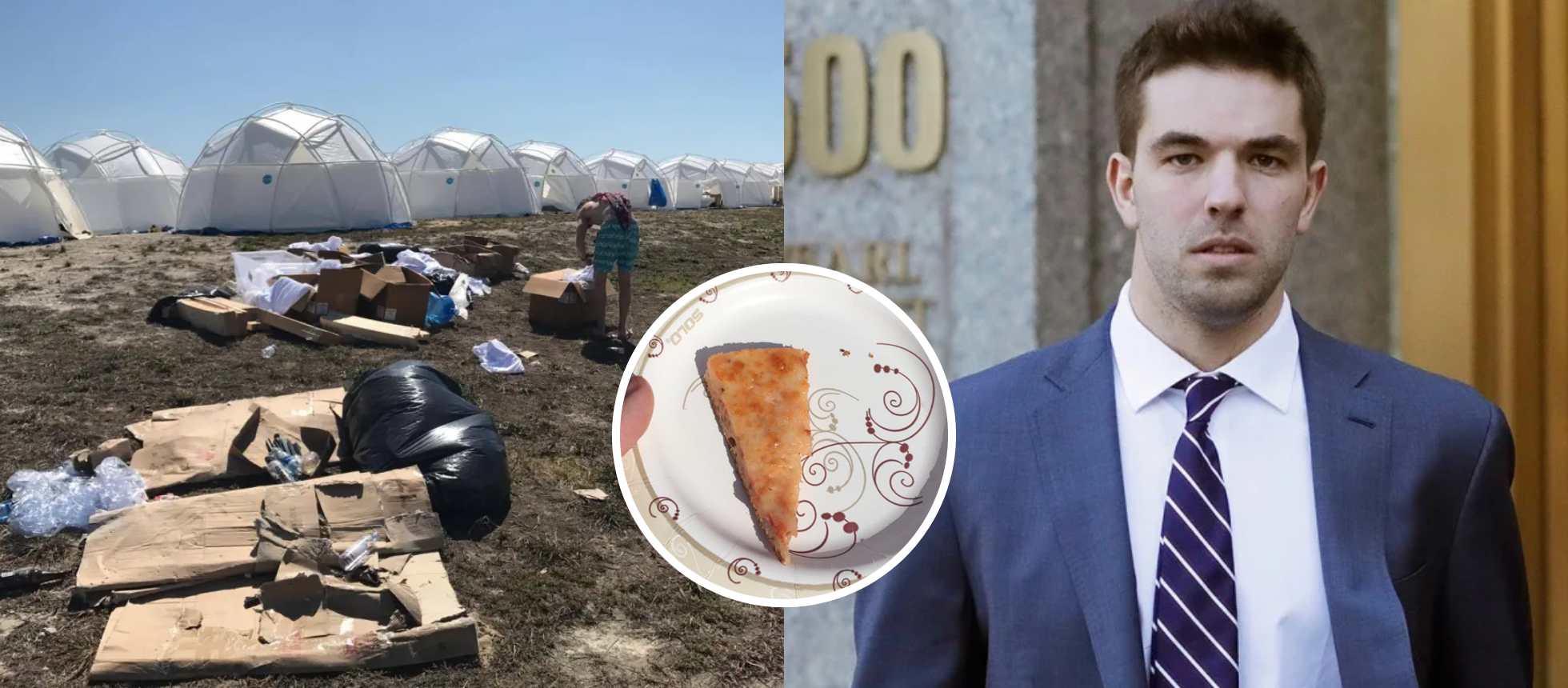The notorious Fyre Festival brand has officially changed hands after its disgraced founder Billy McFarland sold it on eBay for $245,300, marking the definitive end of his troubled attempts to resurrect the infamous event.
The online auction concluded Tuesday afternoon with the final bid accepted at 12:44 p.m. ET, following an intense week-long bidding war that attracted over 175 bids from 42 different participants. McFarland, who was livestreaming the auction’s final moments, expressed his disappointment with the sale price.
“Damn. This sucks, it’s so low,” McFarland said as the bidding closed, clearly underwhelmed by the final amount despite the competitive nature of the auction.
While McFarland remained tight-lipped about the buyer’s identity, he hinted that it was a recognizable brand, cryptically stating “it’s funny” when pressed for details. The sale transfers complete control of the Fyre Festival brand, including all trademarks, intellectual property, social media accounts, websites, marketing materials, domain names, and even SMS and email marketing lists.
Following the auction’s conclusion, McFarland appeared ready to move beyond the chapter that defined his public persona. “Fyre Festival is just one chapter of my story, and I’m excited to move on to my next one,” he announced on social media, congratulating the winner and expressing his eagerness to facilitate the brand transfer.
The sale represents the final chapter in McFarland’s doomed revival efforts. His original 2017 festival became a cultural catastrophe when attendees expecting luxury accommodations and gourmet cuisine instead discovered disaster relief tents and basic cheese sandwiches on a Caribbean island. The debacle resulted in multiple fraud charges and a prison sentence for McFarland, along with a court order requiring him to pay over $26 million in restitution to victims.
Even from behind bars, McFarland continued scheming about a potential comeback. His plans initially centered on staging a scaled-down version of the festival on Isla Mujeres near Cancun, Mexico. However, when local authorities rejected the proposal, he shifted his focus to Playa Del Carmen, Mexico. That venue also fell through when local officials denied any knowledge of the planned event, effectively killing the revival attempt.
This eBay sale marks the third intellectual property transaction involving the Fyre brand this year alone. Earlier, McFarland had licensed the Fyre name to a streaming video service and collaborated with a Honduran hotel owner on a pop-up Fyre event, suggesting he had been actively seeking ways to monetize the brand’s notoriety.
The sale price of $245,300, while substantial, likely falls short of McFarland’s expectations given the brand’s global recognition and cultural impact. The Fyre Festival saga has spawned multiple documentaries, countless news stories, and became a cautionary tale about social media marketing and fraudulent business practices.
Now, with the brand officially in new hands, questions remain about what direction the new owner will take. Whether they plan to attempt another festival, leverage the brand for different ventures, or simply capitalize on its infamous reputation remains to be seen.
For McFarland, the sale represents both an ending and a beginning. After years of legal troubles and failed comeback attempts, he can finally close the book on the project that brought him both fame and infamy. However, his substantial restitution obligations ensure the financial consequences of his actions will continue long after the brand transfer is complete.


